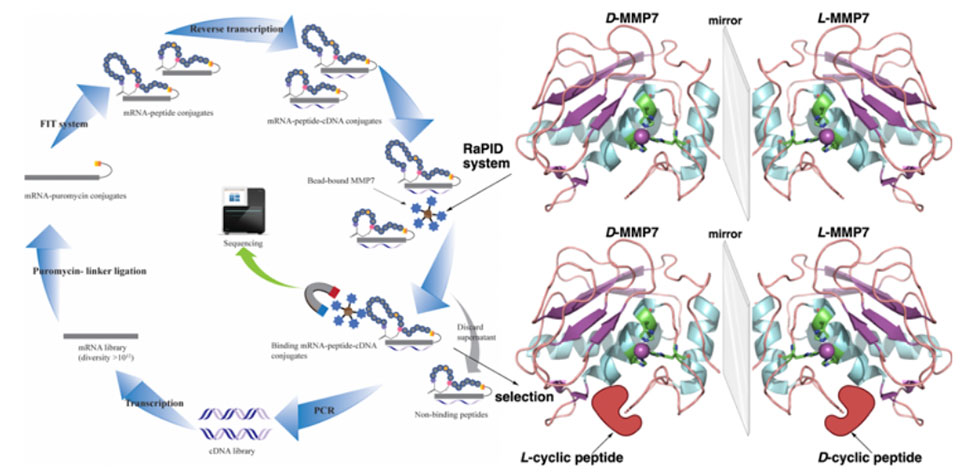Norman Metanis
Professor
The Hebrew University of Jerusalem
Talk Information
Protein Modification, Structural Insights, and Disease State
18 June 2025, 09:45am - 10:00am, in the Pacific Jewel Ballroom
L39 – Chemical Protein Synthesis as a Tool for Therapeutic Applications: The development of Mirror-Image RaPID Technology & New Insulin Analogues

Professor Norman Metanis is a Full Professor in the Institute of Chemistry at The Hebrew University of Jerusalem. His research integrates organic synthesis, chemical biology, and protein science, focusing on the chemical synthesis of proteins and the development of chemoselective reactions, particularly involving selenium chemistry.
Academic Background
Dr. Metanis earned his B.A. in Chemistry, cum laude, from the Technion – Israel Institute of Technology in 2000, followed by an M.Sc. in 2004. He completed his Ph.D. in a joint program between the Technion and The Scripps Research Institute, TSRI, in 2008, working with Professors Ehud Keinan and Philip Dawson. He then conducted postdoctoral research with Professor Donald Hilvert at ETH Zurich before joining The Hebrew University of Jerusalem in 2013.
Research Focus
Professor Metanis's research centers on the total chemical synthesis of proteins, the development of chemoselective reactions applied to peptide and protein chemistry, and the study of therapeutic peptides and proteins. His work emphasizes the role of selenocysteine in protein function and structure, utilizing chemical protein synthesis to incorporate this amino acid into proteins for detailed study.
Notable Contributions
Dr. Metanis has pioneered methods for incorporating selenocysteine into proteins, enabling the exploration of selenoproteins' roles in redox biology. His group has developed innovative strategies for protein folding and stabilization, including the use of diselenide bridges to enhance protein stability and function.
Awards and Honors
Professor Metanis has received several accolades, including the Miklós Bodanszky Award from the European Peptide Society in 2018, the Thieme Chemistry Journal Award in 2017, and the Ma’of Fellowship for Outstanding Arab Lecturer in 2013. He was also recognized as an outstanding teacher for his course "Organic Chemistry for Medical Students" in 2017.
Professional Engagements
Beyond his research, Dr. Metanis serves as a National Representative at the European Peptide Society and actively participates in scientific conferences and symposia. He is committed to mentoring students and advancing the field of chemical biology through interdisciplinary collaboration.
Through his innovative research and dedication to education, Professor Norman Metanis continues to make significant contributions to the understanding of protein chemistry and the development of novel biochemical tools.
Chemical Protein Synthesis as a Tool for Therapeutic Applications: The Development of Mirror-Image RaPID Technology & New Insulin Analogues
Institute of Chemistry, The Center for Nanoscience and Nanotechnology, Casali Center of Applied Chemistry, The Hebrew University of Jerusalem, Jerusalem 9190401, Israel
Random nonstandard Peptides Integrated Discovery (RaPID) system is one of the most powerful methods for the selection of de novo macrocyclic peptide binders for proteins of interest by using a combination of flexible in vitro translation system (FIT) and mRNA display technology. Here, we show the development of mirror-image RaPID technology (Fig. 1) for the discovery of innate protease-resistant macrocyclic peptides that specifically bind to and inhibit Matrilysin (MMP7). MMP7 plays a crucial role in cancer metastasis and progression, making it an attractive target for therapeutic development. However, the development of potent and selective MMP7 inhibitors is challenging due to the conservation of active site across various MMPs.

Figure 1. Mirror-image RaPID technology against MMP7.
We started by developing an approach for the chemical synthesis of the catalytic domain of MMP7, and upon optimization, we were able to synthesize both biotinylated L- and D-MMP7 in milligram quantities, which where both used in the RaPID system. One of the identified macrocyclic peptides against biotinylated D-MMP7, termed D20, was synthesized in its mirror-image form, D’20, consisting of twelve D-amino acids, one cyclic β-amino acid and a thioether bond. Notably, D’20 potently inhibited the human MMP7 with IC50 of 90 nM, and showed selectivity over other MMPs tested in this study. Moreover, D’20 inhibited the migration of pancreatic cell line CFPAC-1 while having no effect on the cell proliferation and viability. Additionally, D’20 exhibited excellent stability in human serum, as well as in the simulated gastric and intestinal fluids. This study highlights that the mirror-image RaPID technology can be a powerful tool to develop in vivo stable macrocyclic peptides for therapeutic applications.
Furthermore, I will discuss our latest results for the preparation of new analogues of insulin, in which a disulfide 6-11 in chain A of insulin was replaced with diselenide, allowing us to prepare Se-insulin analogues in high yield. Further, we found that these insulins were more stable at room temperature than wt-insulin, and more resistant to fibrillation. These studies bring us closer to make more stable insulin analogues for diabetes melilotus.
Selected Publications
1. Ghareeb, H.; Yi, L. C.; Karapadi-Shenoy, A.; Shifman, J.; Sagi, I.; Suga, H.; Metanis, N. “Mirror-Image Random Nonstandard Peptide Integrated Discovery (MI-RaPID) Technology Yields Highly Stable and Selective Macrocyclic Peptide Inhibitors for Matrix Metallopeptidase 7”, Angew. Chem. Int. Ed. (2024), 63. https://doi.org/10.1002/anie.202414256
2. Zhang, Z.; Ding, Z.; Yang, J.; Zhao, Y.; Zhao, Z.; Can, L.; Metanis, N.; Zhao, J. “Efficient Approach to AviCys Analogues via Regio- and Stereoselective Hydrosulfuration of Ynamides” (2024), Org. Chem. Front. https://pubs.rsc.org/en/content/articlepdf/2024/qo/d4qo01572j
3. Wang, C.; Zhao, Z.; Ghadir, R.; Yang, D.; Zhang, Z.; Ding, Z.; Cao, Y.; Zhao, Y.; Li, Y.; Fassler, R.; Reichmann, D.; Zhang, Y.; Zhao, Y.; Liu, C.; Bi, X.; Metanis, N.; Zhao, J. “Peptide and Protein Cysteine Modification Enabled by Hydrosulfuration of Ynamide” (2024), ACS Cent. Sci. https://doi.org/10.1021/acscentsci.4c01148
4. Zhao, Z.; Laps, S.; Gichtin, J.; Metanis, N. “Selenium Chemistry for Spatio Selective Peptide and Protein Functionalization” (2024), Nat. Rev. Chem. 8, 211–229.
5. Weil-Ktorza, O.; Balamurugan, D.; Weiss, M. A.; Metanis, N. “Se-Glargine I. Chemical Synthesis of a Basal Insulin Analog Stabilized by an Internal Diselenide Bridge” (2024), ChemBioChem, 25, e202300818.
Norman Metanis, Ph.D.
Institute of Chemistry, The Center for Nanoscience and Nanotechnology, Casali Center of Applied Chemistry, The Hebrew University of Jerusalem, Jerusalem 9190401, Israel
E-mail: [email protected]

